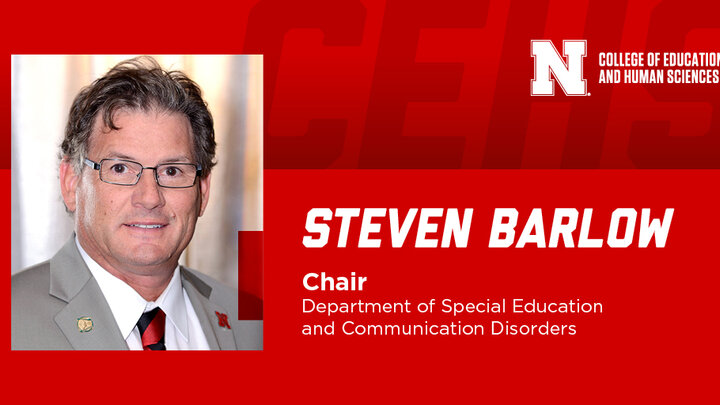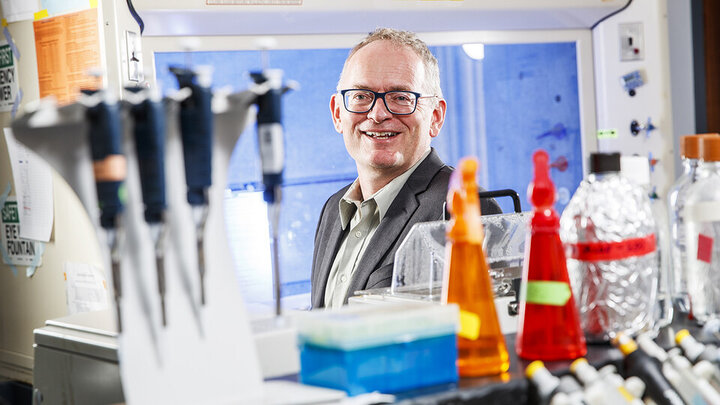Steven Barlow has been named chair of the Department of Special Education and Communication Disorders in the College of Education and Human Sciences at the University of Nebraska–Lincoln. He will assume the position on July 1.
The department chair position is currently held by Ron Nelson, who is retiring this summer after more than two decades at Nebraska.
“Steven is an exemplary researcher and educator who will bring a wealth of experience to this role,” said Sherri Jones, dean of the College of Education and Human Sciences . “I look forward to working with him to continue the momentum of the department in achieving its mission to enhance the lives of individuals with special needs, their families, schools and communities.”
Barlow came to the department in 2014 as Corwin Moore Professor after working at the University of Kansas for 14 years. He also serves as the associate director of the university’s Center for Brain, Biology and Behavior.
“It is a distinct honor to lead SECD, with its distinguished research, teaching, and clinical faculty, and professional staff,” said Barlow. “Our mission is to serve and engage Nebraskans and the world-community to achieve maximum potential for learning, communicate autonomously, and optimize health and well-being throughout the lifespan. Science, collaboration, creativity, innovation, dissemination, diversity and engaged scholarship are the means to realize these goals.”
His research is collaborative in nature and focuses on the neurobiology of somatosensory and motor systems in premature infants. Steven developed the NTrainer System™, which was approved by the Food and Drug Administration in 2008 for use in the neonatal intensive care unit to promote sucking and oral feed progression. This therapeutic system delivers innovative pulsed cutaneous stimulation to the neonate’s mouth during a critical period of development to facilitate oral feeding skills.
Barlow currently serves as the principal investigator for an ongoing multisite National Institutes of Health randomized controlled trial which aims to study the effects of somatosensory stimulation in extremely preterm infants on the modulation of gene expression related to the development of the brain’s feeding circuits, and its influence on long-term neurodevelopmental and behavioral outcomes. His team is now researching a new form of velocity-encoded somatosensory stimulation to selectively promote collateral cerebral blood flow and preserve brain function in adult survivors of ischemic strokes, which account for about 87 percent of all strokes.
Barlow’s extensive list of scholarly accomplishments includes 13 inventions and patents, 265 presented papers, 149 publications, a 380-page textbook and numerous funded research projects and activities as both an instructor and researcher. A passionate educator, Barlow has mentored 38 graduate students and postdoctoral fellows, and worked with many more in his lab, Communication Neuroscience Laboratories.
Barlow earned his bachelor’s degree in speech pathology from the University of Wisconsin, where he also earned a master’s degree in speech-hearing sciences and a doctorate in speech physiology and neuroscience. He also completed postdoctoral work on the neurophysiology of vocalization and oromotor control systems in animal and human models at Boys Town National Institute.
To learn more about the Department of Special Education and Communication Disorders , visit https://cehs.unl.edu/secd/.
College of Education and Human Sciences
Special Education and Communication Disorders




